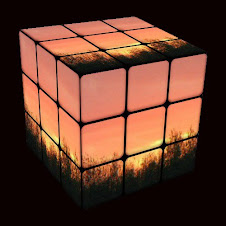The Memory Genius
Chess player, born in Somerville, Massachusetts, USA. The best American since Paul Morphy, he beat an unprecedented field including the world champion, the ex-champion, and the champions of six countries, in Hastings, UK (1895), and twice beat Jackson Showalter for the US title (1897, 1898). He died of a stroke.
Being in constant need of money, and perhaps also as a challenge to Lasker, Pillsbury (in addition to normal chess) made pioneering experiments in simultaneous blind chess. Travelling from one event to the next, he popularized chess and attracted the masses. In 1900, he went on a seven-month US tour, covering 40,000 miles, with over 150 performances. In 1897, he had become the official US chess champion. And now, this famous Harry Nelson Pillsbury stood on the stage, self-confident, and ready for the show – because as a show-act it had been announced: a performance of simultaneous blind chess and checkers, ten games of each, along with a surprise memory test! Clamorous applause, then again hushed silence. A member of the jury stepped forward and handed Pillsbury a piece of paper with a strange ‘poem’ to memorize:
Antiphlogistine, periosteum, takadiastase, plasmon, ambrosia,Threlkeld, streptococcus, staphylococcus, micrococcus, plasmodium,Mis sis sippi, Freiheit, Philadelphia, Cincinnati, athletics, no war,Etchenberg, American, Russian, philosophy, Piet Potgelter’s Rost,Salamagundi, Oomisillecootsi, Bangmamvate, Schlechter’s Nek,Manzinyama, theosophy, catechism, Madjesoomalops
Two psychologists had compiled this nonsensical list with the intention of confusing Pillsbury’s memory with known and unknown terms. Unimpressed, Pillsbury read the paper while printed copies were being handed out to the audience. However, the last spectators in the back rows had not yet received the leaflet when Pillsbury laid his sheet aside and repeated the words from beginning to end and, for fun, also backwards. The audience was stunned.
Pillsbury seated himself at a small vacant table while twenty local players of chess and checkers were sitting along a row of tables a few metres away from him, with the boards placed in front of them. One player after the other made his move, which was conveyed to Pillsbury who, after short thought, announced his move. Then his respective opponent was given time to think until Pillsbury had made his next move in all other games. Sporadically he went to another table for some whist drives – just to make the show even more exciting, and also to give his opponents more time to think about their next moves. ...







2 comments:
I thought Eddie Fischer was the greatest American chess player that ever lived?
I read an article about Eddie Fischer being the best ever American chess player. Are you equal with this?
Post a Comment